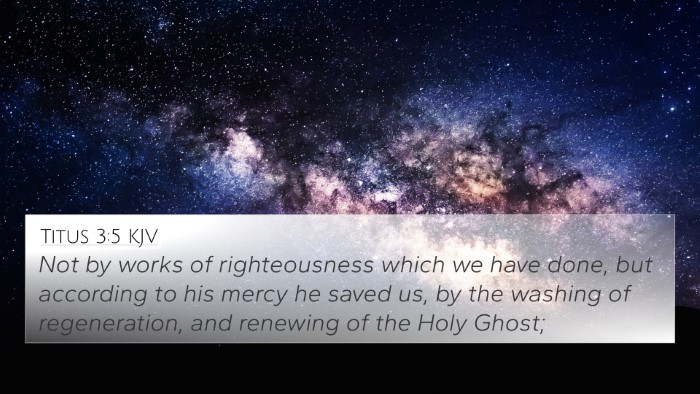John 14:26 states:
"But the Comforter, which is the Holy Ghost, whom the Father will send in my name, he shall teach you all things, and bring all things to your remembrance, whatsoever I have said unto you."
This verse encapsulates profound truths regarding the role of the Holy Spirit in the life of believers. It highlights three primary functions:
- The Teacher: The Holy Spirit is referred to as the "Comforter" or "Helper," emphasizing His role as a divine teacher who imparts understanding and wisdom.
- Governor of Memory: He aids in recalling the teachings of Jesus, ensuring that no significant truths are lost over time.
- The Divine Connection: The verse establishes the relationship between the Father, the Son, and the Holy Spirit, affirming the unified work of the Trinity in guiding believers.
Commentary Insights:
According to Matthew Henry, this verse underscores the importance of the Holy Spirit in guiding the church post-Pentecost. The Comforter is not merely a helper, but one who brings the revelations of Christ into the hearts of believers, ensuring that they can live according to His teachings.
Albert Barnes emphasizes the phrase "in my name," noting that the sending of the Holy Spirit is a direct result of Christ's authority and the fulfillment of His promise. Barnes remarks on the comfort and instruction the Holy Spirit provides, reflecting the wisdom and memory that believers can rely upon for their spiritual journey.
Adam Clarke elaborates on the term "bring all things to your remembrance," interpreting it as a promise for believers that they will not forget the teachings of Christ, particularly during moments of trial or testimony. Clarke believes this is indicative not only of divine assistance but also of the necessity for believers to study the scriptures to aid the Spirit's work in their lives.
Related Bible Verse Cross-References
This verse connects with numerous other scriptures that elucidate its themes:
- John 16:13: "Howbeit when he, the Spirit of truth, is come, he will guide you into all truth."
- Acts 1:8: "But ye shall receive power, after that the Holy Ghost is come upon you."
- Romans 8:26: "Likewise the Spirit also helpeth our infirmities: for we know not what we should pray for as we ought."
- 1 Corinthians 2:12: "Now we have received, not the spirit of the world, but the spirit which is of God; that we might know the things that are freely given to us of God."
- 1 John 2:27: "But the anointing which ye have received of him abideth in you, and ye need not that any man teach you."
- Matthew 10:20: "For it is not ye that speak, but the Spirit of your Father which speaketh in you."
- Luke 12:12: "For the Holy Ghost shall teach you in the same hour what ye ought to say."
Understanding the Inter-Biblical Dialogue
John 14:26 exists within a rich tapestry of inter-Biblical dialogue, where concepts of the Holy Spirit's function and teaching authority are mirrored throughout scripture. Exploring these connections provides deeper understanding of how these themes are woven into the entirety of Biblical teaching.
Thematic Connections
While studying this verse, it’s essential to consider the thematic connections it shares with other passages in the Bible. These connections reinforce the integral role of the Holy Spirit in:
- Revelation of Truth: The ongoing enlightenment of believers regarding God's will.
- Empowerment: Enabling believers to carry out missions and discipleship effectively.
- Comfort in Trials: Assurance that God is always present with His people.
Tools and Methods for Biblical Cross-Referencing
To deepen your understanding of Bible verse connections, several tools and methods can be employed:
- Bible Concordance: A guide that helps locate topics or specific words throughout the scriptures.
- Bible Cross-Reference Guides: Resources that highlight related verses for thematic studies.
- Cross-Reference Studies: Methods involving thematic analysis between various scriptures to draw out deeper meaning.
- Comprehensive Bible Study Guides: Materials that provide systematic approaches to studying and understanding interconnected verses.
Conclusion
The verse John 14:26 serves as a pivotal point for understanding the role of the Holy Spirit within the framework of Christian theology. It assures believers of divine assistance in learning and memory retention, positioning the Holy Spirit as an indispensable helper in their spiritual lives. The connections between this verse and others enrich the context, guiding believers to a more profound understanding of God's Word through diligent study and reflective prayer.


























